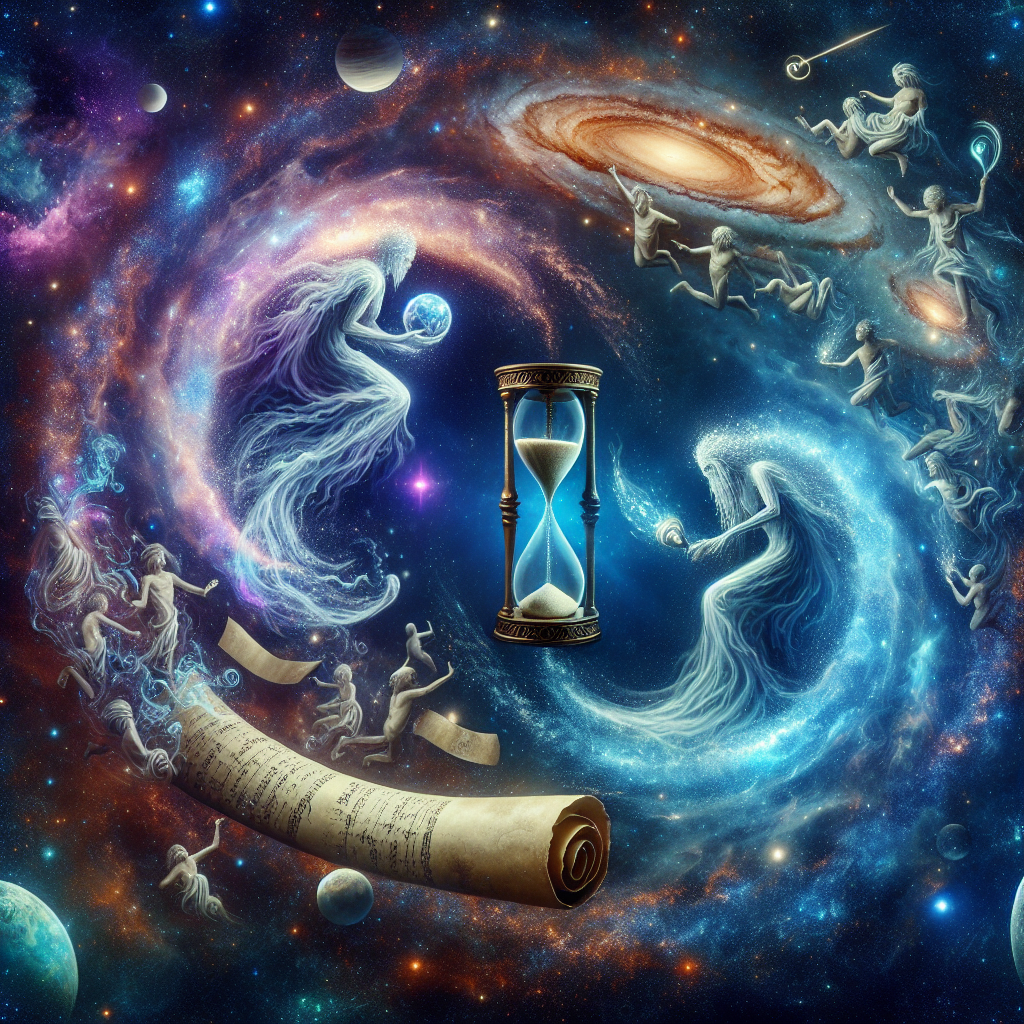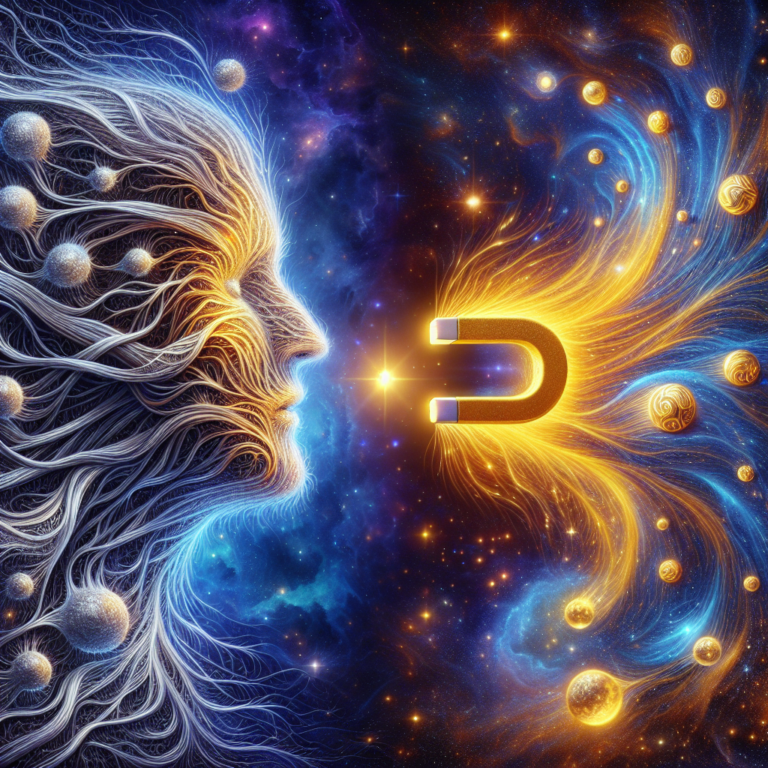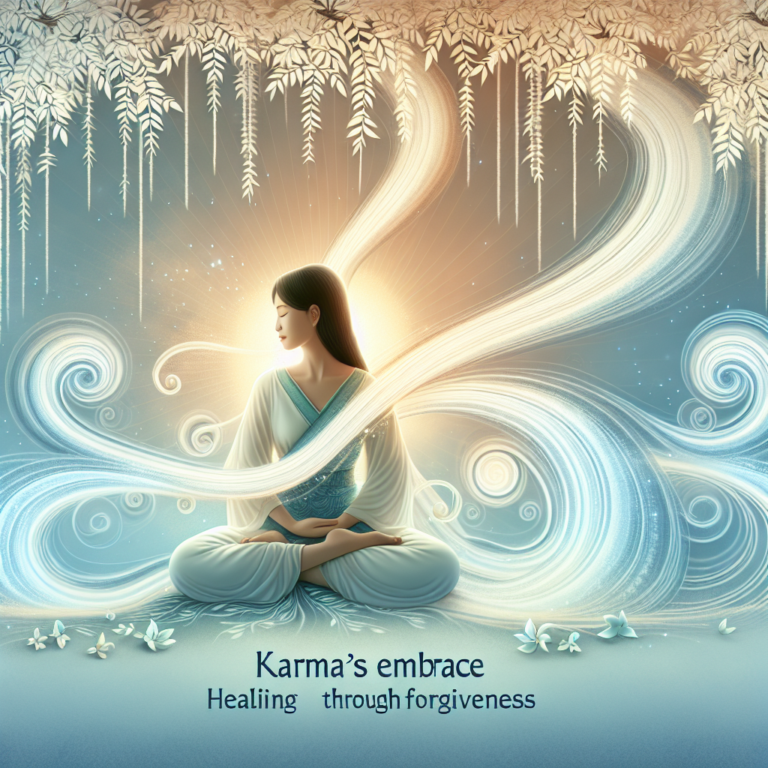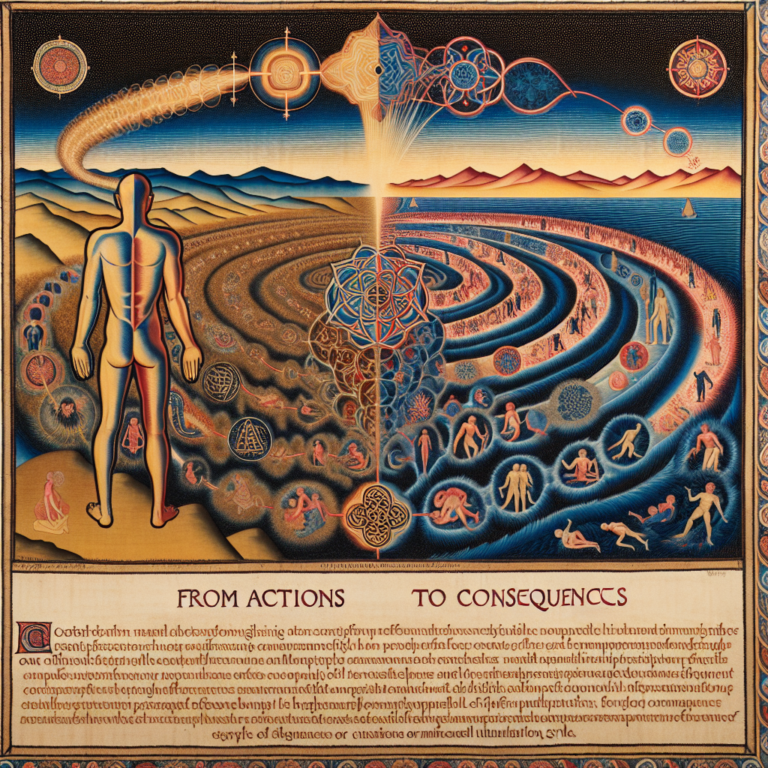In our quest to make sense of life’s complexities, two concepts frequently arise: karma and destiny. These interconnected notions serve as guiding principles in philosophy, spirituality, and even daily living. While often used interchangeably, karma and destiny describe different aspects of our existence. This article explores the nuanced relationship between these two concepts, illustrating how they operate in the grand scheme of the universe.
Understanding Karma
Karma, derived from the Sanskrit word "karman," means "action" or "deed." It encompasses the idea that every action has consequences, forming a continuum of cause and effect that governs human experiences. This can manifest in various ways, such as the ethical implications of our choices in life. When individuals act kindly or maliciously, their actions generate a ripple effect that influences not only their own lives but also the lives of others.
The Law of Cause and Effect
At the core of karma is the law of cause and effect. Every action we take produces a corresponding outcome, positive or negative, shaping our experiences. In many Eastern philosophies, particularly Hinduism and Buddhism, the notion of karma underscores the belief in reincarnation. According to this perspective, our actions in this life affect our future incarnations, meaning individuals carry the weight of their past choices through cycles of rebirth.
The Role of Intention
A pivotal factor in understanding karma is intention. It’s not merely the action itself that matters, but the intent behind it. Acts performed with pure intentions may generate positive karma, while even seemingly good actions carried out with selfish motives can yield negative consequences. The quality of our thoughts and motivations plays a crucial role in determining the karma we accumulate.
Grasping Destiny
While karma revolves around individual actions and their outcomes, destiny refers to an overarching framework governing one’s life path. Often viewed as predetermined or fated, destiny can evoke feelings of inevitability. Different cultures interpret destiny in various ways — from the belief in a divine plan to the idea of universal laws that guide the course of existence.
The Interplay of Free Will
A common debate surrounding destiny addresses the extent of free will. Are we simply marionettes in a divine play, or do we wield the power to shape our futures? Many spiritual traditions propose a synthesis of these ideas, suggesting that while certain life events may be destined, we possess the autonomy to navigate how we respond to them. This interplay of free will and fate further enhances our understanding of human existence.
Destiny in Popular Culture
In literature and cinema, destiny often serves as a compelling narrative device. Protagonists struggle against their fates, challenging the notion of inevitability. Movies like "The Matrix" or works like Shakespeare’s plays explore themes of predestination and choice, illustrating the tension between destiny and individual agency. These narratives allow audiences to delve into their relationships with fate, prompting introspection about their paths.
Karma and Destiny: The Cosmic Dance
Karma and destiny are interconnected, forming a cosmic dance that enriches our understanding of existence. Every action we take (karma) weaves into the fabric of our life path (destiny).
Cycles of Life
The interrelationship creates a cyclical pattern—individual choices lead to life experiences, which in turn shape future decisions. This continuum can be likened to a river, with each action acting as a drop that contributes to the overall flow. While we may not have control over all aspects of our destiny, the accumulation of our karma undeniably influences our experiences.
Creating Meaning in Life
This dance between karma and destiny empowers individuals to take responsibility for their actions. The recognition that our choices resonate throughout our lives compels us to act with intent, fostering personal growth and transformation. Understanding that we can influence our karmic destiny creates a sense of agency, reinforcing that we are active participants in shaping our realities.
Treading the Path of Enlightenment
Many philosophies advocate for the mindful cultivation of actions and intentions to yield positive karma. Mudita (sympathetic joy), compassion (karuna), and loving-kindness (metta) are practices that enrich our karmic bank while fostering positive destinies. By aligning our actions with higher ideals, we not only enhance our own experiences but contribute to the collective well-being of the universe.
Conclusion
Karma and destiny are profound concepts woven into the fabric of existence, inviting us to reflect on our choices and their ramifications. While destiny might set the stage, karma provides the script, allowing us to exercise free will through our actions. Understanding this cosmic dance helps cultivate intentional living and awareness, enabling us to shape our paths consciously.
FAQs
Q1: Are karma and destiny the same thing?
A1: No, karma and destiny are not the same. Karma refers to the actions and intentions that create consequences, while destiny pertains to the overall path or fate of an individual’s life. They are interrelated concepts that influence each other.
Q2: Can karma be changed?
A2: Yes, karma can be changed. By consciously choosing to act with positive intentions and making ethical choices, individuals can create new karmic patterns and, consequently, alter their life experiences.
Q3: Is karma always immediate?
A3: Not necessarily. The effects of karma can manifest immediately, but often, they unfold over time—sometimes across lifetimes. This delay can make it challenging to recognize the connection between actions and their consequences.
Q4: Is destiny predetermined?
A4: The concept of destiny varies widely among belief systems. Some philosophies suggest that certain life events are predetermined, while others emphasize the role of free will in shaping one’s path. Many people believe in a synthesis of both.
Q5: How can I create positive karma?
A5: You can create positive karma by acting with kindness, compassion, and integrity. Practicing mindfulness and living in accordance with your values can also help cultivate good karma, as can volunteering your time and resources to help others.
By understanding and embracing the nuances of karma and destiny, we can approach life with a profound sense of responsibility and purpose, ultimately leading to richer, more fulfilling experiences.
It seems like you’re looking for a prompt, but I’m not sure what specific type you need. Here are a few different types of prompts you might find interesting:
Creative Writing Prompt:
- "Write a short story about a character who discovers a portal in their attic that leads to an alternate version of their hometown."
Reflective Prompt:
- "Think about a moment in your life when you faced a significant challenge. What did you learn from that experience?"
Educational Prompt:
- "Discuss the impact of climate change on marine life. Include examples of specific species that are affected."
Art Prompt:
- "Create an abstract piece that represents the concept of ‘freedom.’"
- Business Prompt:
- "If you were to start a new business, what would it be and how would you differentiate it from competitors in the market?"
Let me know if you have a specific type of prompt in mind or if you’d like something different!
, #Karma #Destiny #Cosmic #Dance #Effect, #Karma #Destiny #Cosmic #Dance #Effect, 1735003830, karma-and-destiny-the-cosmic-dance-of-cause-and-effect





